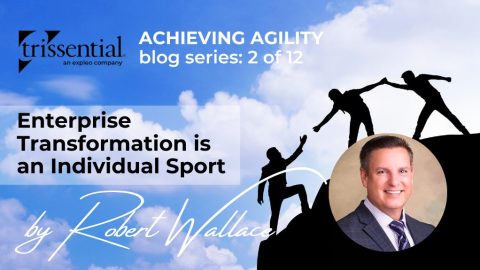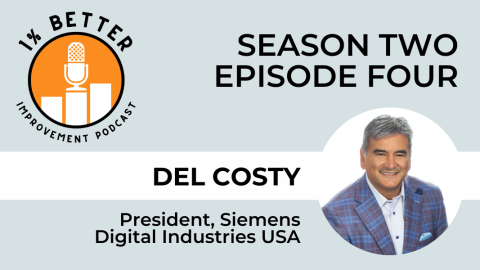
Taylorism was a popular management approach of the early 20th century applied to industrial and manufacturing organizations. Taylorism strived to break down work into small and repeatable tasks that could be taught to people even with limited education. Many companies still apply this approach today. Taylorism is focused on individual performance (i.e. How many widgets can I make per day?). The problem with this approach is that employees become disengaged and productivity suffers over time. Managers responded to disengagement by varying the work and beginning to cross-train employees to allow them to learn and broaden their experience.
Work is far more complex than that today. Most jobs require at least some level of creativity or innovation that cannot be easily broken down and taught. With more opportunities for advanced education focused on critical thinking, the workforce is becoming more equipped than ever to solve these complex challenges. This next generation of employees is known as “Knowledge Workers.” More than 40 years ago, W. Edwards Deming began pioneering a new way of working to support the productivity of the knowledge worker. Deming’s approach, Total Quality Management, encompassed 14 points focused on enabling engagement in the workforce based on intrinsic motivation and continuous improvement. His work has been continued through Lean and Agile, which empowers companies to unleash the value of critical thinking skills.
Many companies invest heavily in tools to screen potential employees for education and critical thinking. However, after hiring, many employees skills are grossly underutilized leading to disengagement. Over the last 40 years, disengagement in the workplace has cost companies billions of dollars in recruiting and loss of institutional knowledge. The most successful companies have come to understand that engagement in the workplace is an important factor.
The Age of Continuous Disruption
It is no secret that the business environment is becoming more complex and competitive.
In fact, experts have projected 75% or more of S&P and Fortune 500 Companies will be replaced over the next ten years due to marketplace disruption. Established companies will be replaced by new or existing companies with more effective or innovative ways of delivering products and services that have “stood the test of time.” This level of disruption requires a change in approach from focus on process to focus on customer satisfaction through continuous innovation and improvement. Customers are delighted when they find that their suggestions are integrated into products and services. There are some unintended benefits of engaging customers in product development as well:
- Customer Experience – Customers are provided with better products and services because they meet their specific needs.
- Brand Loyalty – Customers feel valued when their feedback is requested and integrated into products and services. This engagement leads to brand loyalty that goes beyond another points program.
- Lower Acquisition Cost – When customers have a great experience, and feel valued, they share their experience through several channels.
With the prevalence of disruption in the world, it is becoming increasingly important to be able innovate and test products and services quickly. Businesses will continue to lose customers and revenue to disruptive competitors. The most successful companies understand that customer engagement is critical.
This is why a growing number of companies are embarking on the journey toward Enterprise Agility, which encompasses both Business Agility and Technical Agility. To achieve true Enterprise Agility, it is important to deliver a mindset, rather than a tool set for delivery. However, this Lean Agile mindset requires significant organizational and cultural change in order to be successful.
The Solution
In order to rapidly adapt to the changes in the workforce and business environment, it is crucial for organizations to create a culture that supports innovation and improvement.
The building of a continuous improvement culture is rooted in each employee’s ability to understand the vision of the company and to connect their contribution to that vision. Once the mindset is implemented, the approach, practices, and tools can be continuously improved upon in alignment with the strategy.
Enterprise Agility offers numerous frameworks to support the Age of the Knowledge Worker and Continuous Disruption. However, it is important to remember that this is more than a set of tools for rapid delivery of products or services. Enterprise Agility is a new set of values and tenets that embody a change in thinking.
- Better Customer, Employee, and Stakeholder Experience – When people feel valued, results are better for everyone, including stakeholders and shareholders.
- Continuous Innovation – When employees understand the needs and concerns of their customers, they feel a greater sense of satisfaction and engagement. Enterprise Agility includes mechanisms to leverage the problem-solving skills of Knowledge Workers to meet or exceed customer expectations.
- Continuous Improvement – Everything in Enterprise Agility, including Agile practices, is subject to continuous improvement through actionable feedback from customers, employees, and stakeholders. Agility invites customers and employees to provide frequent feedback.
When implementing Agility, it is important to choose a partner that understands the journey. Trissential has a unique blend of expertise to meet and support you on your journey. We coach your organization to implement the mindset. When your business is ready to implement tools, we will select from a mixture of the tools to support Agility to support your vision and objectives. Unlike many firms, we are responsive to your specific needs rather than forcing any one framework into place. The most successful implementations require clients to take ownership of the journey and continuously improve long after the consultants are gone. At Trissential, we give you our best in starting, growing and sustaining the journey.









